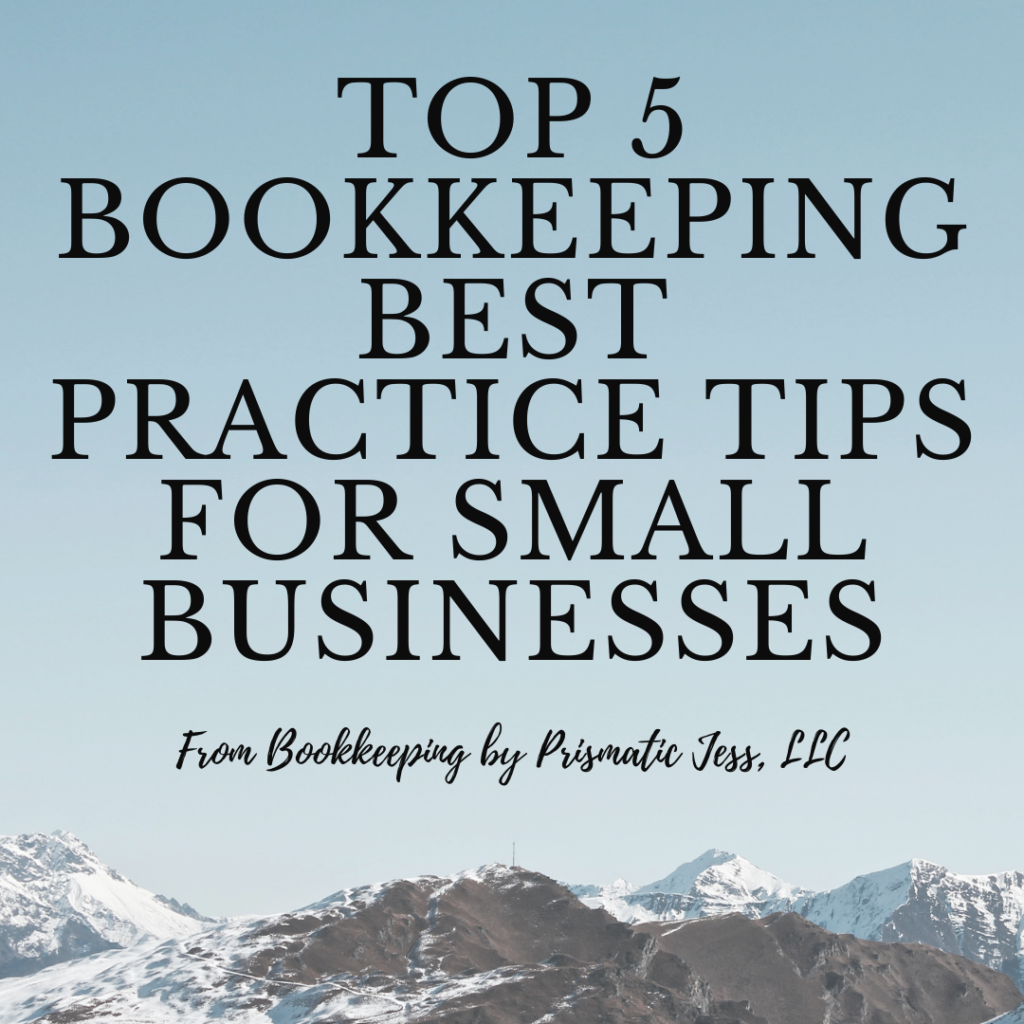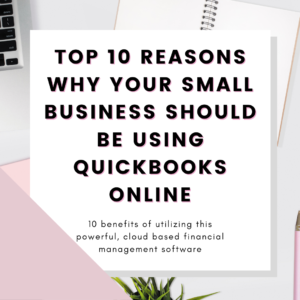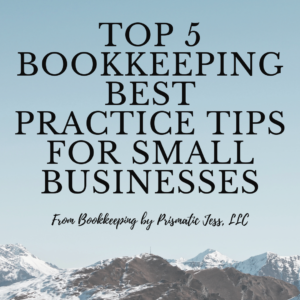Top 5 Bookkeeping Best Practice Tips For Small Businesses
What is Bookkeeping?
Bookkeeping is the recording, storing, classifying, and retrieving of financial transactions. Bookkeepers are the individuals that manage and organize all of this financial data. Accurate bookkeeping records are crucial to business owners in order to make sound decisions about their business. It is also crucial to external users like investors, financial institutions, and the IRS. Without meticulous bookkeeping, it would be impossible to know how a business is really doing, whether it is reaching its financial goals, or to be adequately prepared for taxes.
What are best practices?
There are many best practice principles that are important for small businesses to learn and to follow. The Generally Accepted Accounting Principles (GAAP) are a set of rules, guidelines, and principles established by the Financial Accounting Standards Board (FASB) and the American Institute of Certified Public Accountants (AICPA). Companies of all sizes and across all industries in the United States adhere to these principles. In addition to following these general rules, there are some bookkeeping specific best practices that are critical to maintaining clean books. Here is my list of the top five bookkeeping best practices for small businesses.
#1 – Keep Business and Personal Accounts Separate.
Segregate your personal and business funds starting day one. Maintaining separate bank accounts and credit card accounts is paramount in managing your cash flow. Accurate financial reports would be impossible without distinguishing business from personal transactions. It is also important to save receipts and document expenses. It can be difficult to remember details about every transaction from day-to-day. Maintaining separate personal and business accounts simplifies this process tremendously. This will ensure that you receive the appropriate deductions at tax time. It can also make a positive impact on both your personal and business credit scores and help you to avoid negative legal implications.
#2 – Maintain Accurate Records.
Not keeping accurate, up-to-date records can be the demise of a small business. It is important to record transactions as they happen when details are fresh if possible. Transactions should be recorded at least weekly, if not daily, in order to stay on top of things. Attaching the original source document, receipt, or notes to each transaction provides the evidence and details necessary in case of an audit. New technology makes it easier than ever before to simply snap a picture of a receipt with your smartphone while on the go. New apps make managing these source documents so much simpler! They can even integrate with cloud storage platforms and cloud based accounting software.
#3 – Plan Ahead for Taxes.
Late or incorrect tax payments can result in costly penalties and fines. Filing taxes can be complicated and create stress for most business owners. Good bookkeeping practices and accurate record keeping by a qualified bookkeeper can eliminate these headaches. They will help you to spot and claim the appropriate deductions, keep important documents organized, ensure that you never miss a tax deadline, and help you to avoid audit expenses. A good bookkeeper will work closely with your company’s accounting professional and make sure that they have everything they need in order to make tax time a breeze.
#4 – Choose the right accounting software.
QuickBooks Online is widely regarded as the industry standard for cloud-based financial management software for small businesses. It’s very affordable and offers annual or monthly subscription options. QuickBooks Online helps to simplify the accounting process, and it’s scalable so it can grow with your business. With this software, you own your data. There’s even a mobile app so you can access it from anywhere at any time. There are also numerous apps that can integrate with QuickBooks Online, so you can leverage the power of technology and customize it to fit your individual business needs.
#5 – Outsource your Bookkeeping to a qualified expert.
Running a business is no small feat! Small business owners often hold themselves back by trying to take on too many tasks and end up spreading themselves too thin. Reduce your workload and regain your valuable time to focus on your customers and grow your business by outsourcing your bookkeeping to an expert. You may think you can’t afford it, but hiring an experienced bookkeeper is actually extremely cost effective. You can eliminate the expense of hiring an in-house employee, and only pay for the services you need. A ProAdvisor can help you utilize the latest technology, ensure that your business books are accurate and up-to-date, reconcile your accounts monthly, provide you with financial reports, and make sure that you’re ready for taxes. The question becomes how can you afford not to hire a bookkeeper for your business?
Join my email list to receive a FREE downloadable pdf list of my “Top 5 Bookkeeping Best Practice Tips”, and stay in touch for more valuable small business bookkeeping advice.




